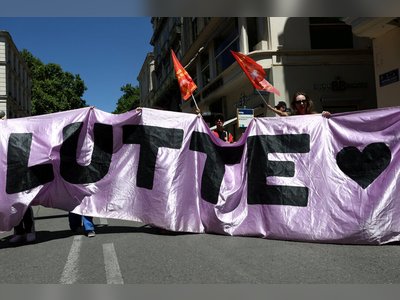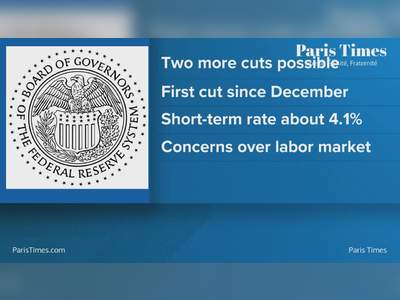Cuba Experiences Widespread Power Outage Amid Ongoing Energy Crisis
The fourth nationwide blackout in less than six months disrupts life across the island, highlighting chronic failures in the aging electrical infrastructure.
Cuba faced a significant nationwide power outage from Friday night into Saturday, marking the fourth such incident in less than six months, attributed to malfunctions in the country’s aging national electrical system.
The Ministry of Energy and Mines reported that the blackout commenced at approximately 8:15 PM local time (00:15 GMT), resulting in a substantial loss of electrical generation, particularly affecting the western region of the island.
The failure originated from a substation in Diezmero, a locality on the outskirts of Havana.
Angélica Caridad Martínez, a 50-year-old resident of Camagüey, expressed her concerns over the power situation, stating that the unpredictable outages have become unbearable, significantly impacting daily life.
Cuba, home to nearly 9.7 million inhabitants, has suffered three widespread blackouts in the last quarter of 2024; two of these lasted several days and coincided with hurricane conditions.
The persistent failures of the electrical grid are exacerbated by an ongoing economic crisis, characterized as the worst in three decades, resulting in severe shortages of food, medicine, and fuel, along with skyrocketing inflation rates.
In response to the latest blackout, Prime Minister Manuel Marrero Cruz announced via social media that efforts were underway to restore the electrical system as quickly as possible.
Despite efforts, many neighborhoods in Havana were plunged into darkness, leaving only a few hotels and privately-owned enterprises illuminated by backup generators, alongside hospitals that maintained power.
Passersby navigated the streets using phone flashlights and other portable lighting sources.
Highly frustrated, residents commented on how the outages have disrupted their daily routines.
This blackout represents the first major power cut of 2025, although the populace regularly endures short-term outages lasting four to five hours in many areas of Havana.
In provincial locations, these outages can extend beyond 20 hours.
In February, the Cuban government had imposed a two-day halt on all activities in a bid to conserve energy and avert a system-wide failure.
Cuba's eight primary power plants, most built in the 1980s and 1990s, frequently experience technical issues.
The country relies on floating power plants leased from a Turkish firm and supplemental generators, which depend on fuel that is difficult for Cuba to import due to the long-standing U.S. embargo established in 1962. This shortage often leads to service disruptions in the national energy supply.
In an attempt to address the crisis, the Cuban government announced plans to install at least 55 solar power parks utilizing Chinese technology by 2025, which are projected to provide 1,200 megawatts of energy, approximately 12% of the national total.
By 2030, Cuba aims to generate over 2,000 megawatts from solar energy, targeting that 37% of the nation’s electricity will come from renewable sources.
The Ministry of Energy and Mines reported that the blackout commenced at approximately 8:15 PM local time (00:15 GMT), resulting in a substantial loss of electrical generation, particularly affecting the western region of the island.
The failure originated from a substation in Diezmero, a locality on the outskirts of Havana.
Angélica Caridad Martínez, a 50-year-old resident of Camagüey, expressed her concerns over the power situation, stating that the unpredictable outages have become unbearable, significantly impacting daily life.
Cuba, home to nearly 9.7 million inhabitants, has suffered three widespread blackouts in the last quarter of 2024; two of these lasted several days and coincided with hurricane conditions.
The persistent failures of the electrical grid are exacerbated by an ongoing economic crisis, characterized as the worst in three decades, resulting in severe shortages of food, medicine, and fuel, along with skyrocketing inflation rates.
In response to the latest blackout, Prime Minister Manuel Marrero Cruz announced via social media that efforts were underway to restore the electrical system as quickly as possible.
Despite efforts, many neighborhoods in Havana were plunged into darkness, leaving only a few hotels and privately-owned enterprises illuminated by backup generators, alongside hospitals that maintained power.
Passersby navigated the streets using phone flashlights and other portable lighting sources.
Highly frustrated, residents commented on how the outages have disrupted their daily routines.
This blackout represents the first major power cut of 2025, although the populace regularly endures short-term outages lasting four to five hours in many areas of Havana.
In provincial locations, these outages can extend beyond 20 hours.
In February, the Cuban government had imposed a two-day halt on all activities in a bid to conserve energy and avert a system-wide failure.
Cuba's eight primary power plants, most built in the 1980s and 1990s, frequently experience technical issues.
The country relies on floating power plants leased from a Turkish firm and supplemental generators, which depend on fuel that is difficult for Cuba to import due to the long-standing U.S. embargo established in 1962. This shortage often leads to service disruptions in the national energy supply.
In an attempt to address the crisis, the Cuban government announced plans to install at least 55 solar power parks utilizing Chinese technology by 2025, which are projected to provide 1,200 megawatts of energy, approximately 12% of the national total.
By 2030, Cuba aims to generate over 2,000 megawatts from solar energy, targeting that 37% of the nation’s electricity will come from renewable sources.











